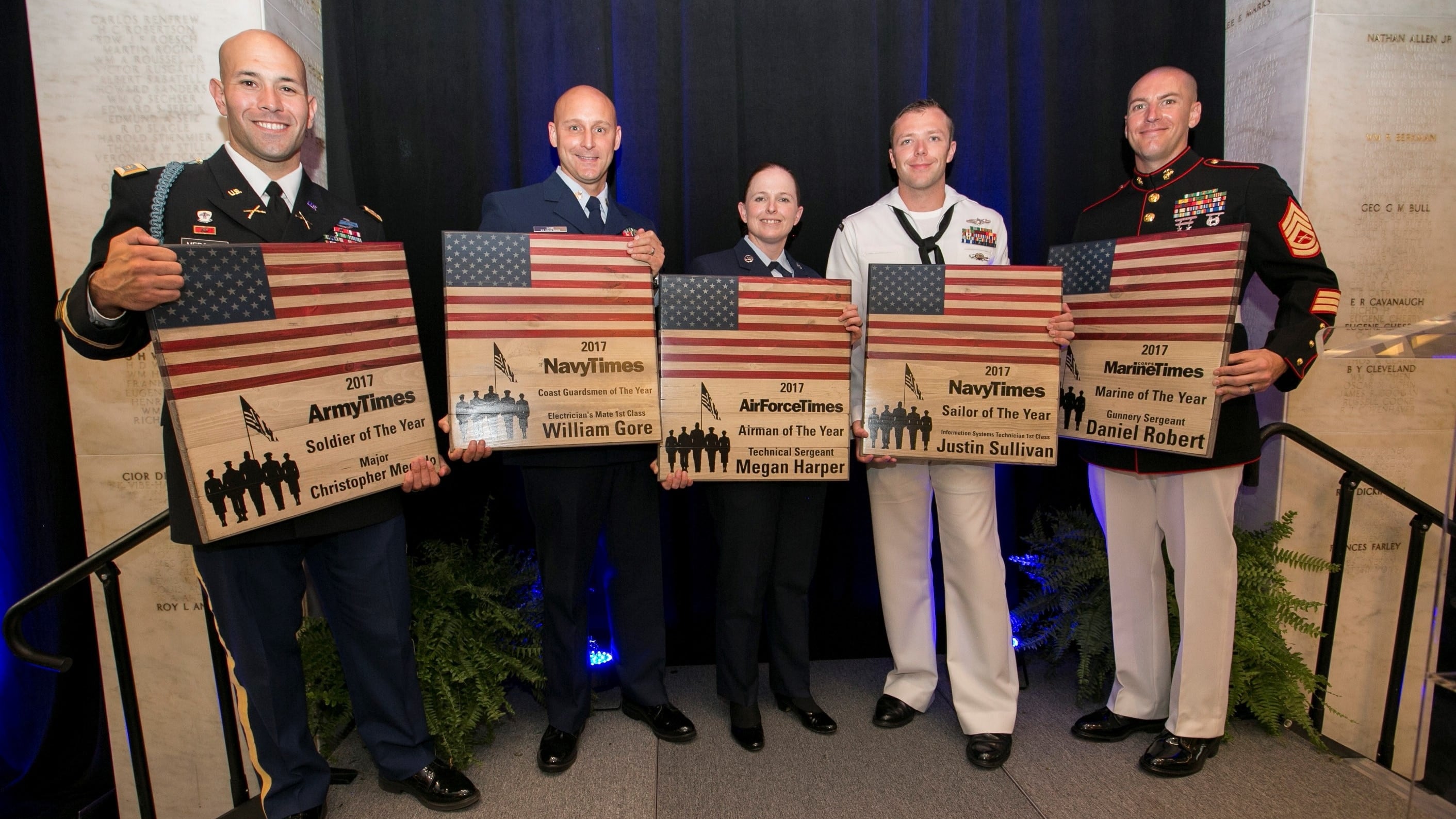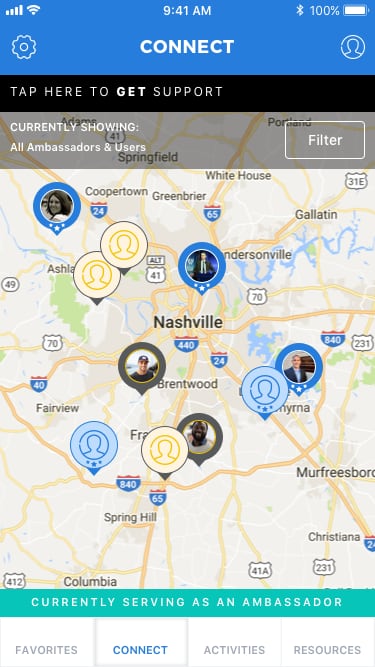An app that links struggling troops and veterans with people who can help them has been used more than 2,600 times.
The Objective Zero Foundation connects members of the military community with ambassadors — people trained to assist someone with depression or suicidal thoughts — and with resources that provide help.
The organization was co-founded by Maj. Chris Mercado, who was Army Times’ 2017 Soldier of the Year, to combat the helplessness he felt after several people he knew took their own lives.
RELATED

The Objective Zero app, available for download through the Apple Store and Google Play, has more than 400 users and more than 300 ambassadors, Mercado told Army Times on Tuesday.
The ambassadors are volunteers from across the United States — with a few from Canada and Germany — who go through three levels of training:
- Operation SAVE: The Veterans Affairs Department training provided to anyone who’s going to interact with veterans in a suicide-prevention context.
- PsychArmor Institute: Objective Zero partnered with this nonprofit that provides free online education for anyone caring for service members, veterans and their families.
- National Center for Veterans Studies: Dr. Craig Bryan, who is also on Objective Zero’s board of advisers, provides training in crisis-response planning.
Mercado, an infantry officer with the 25th Infantry Division in Hawaii, said users have connected with ambassadors — either via text, phone or video — more than 2,600 times.
“Text is the Number 1 method of connection,” he said. “But we’ve already had over 20 hours of connections through either voice or video combined.”
Mercado himself is an ambassador on the app and said he received two separate connection requests within the first two weeks of the soft launch in December.
“In one instance, I was on the line for several hours” as he spoke with a veteran who was struggling with the transition back to civilian life.
The veteran was having a difficult time with employment, Mercado said.
“And he was struggling with his experiences with the VA,” he said. “He said the care he was receiving was good, but it was cumbersome to actually receive the care.”
This echoed what Mercado has heard from other veterans.
“I asked him a lot of open-ended questions about his service and what he experienced,” he said. “I reminded him about those meaningful relationships he had with his unit.”
When Mercado asked if the veteran was thinking of hurting himself, the veteran said no.
“He was just looking for someone to talk to,” Mercado said. “Just looking for that connection. That social connectedness we’re hoping to provide.”
A little more than 60 percent of the ambassadors are service members or veterans, and the rest are civilians — either licensed counselors and therapists, or simply concerned citizens who just want to help.

Mercado said one thing that surprised him was how some users who are either in the military or used to serve prefer connecting with a civilian.
“We were under the impression that most vets or service members wanted to talk to someone who’s been there before and walked in their shoes,” Mercado said.
But then they were contacted by a veteran who wanted to speak with someone who has no idea with serving in the military is like. That way, the ambassador could offer a fresh and unvarnished opinion.
“This caused us to reexamine our assumptions,” Mercado said.
The foundation is working on partnerships with the Defense Department and the VA so these agencies can offer the app as a resource to troops and veterans.
“They would recognize the app as a potential tool and resource to rely on,” he said.
Mercado said the team has also reached out to hospitals around military installations in hopes that a medical provider could prescribe the app as a tool for their patients.
The foundation is also looking at predictive technology, where they can anticipate someone moving toward that downward spiral of depression and suicide, Mercado said.
A user could opt in to this feature so Objective Zero could look at biometric data contained in smart watches or other wearables, he said.
“We can look at such things as sleep patterns and alcohol intake,” he said. “We can also use searches that people have online.”
The algorithm would aggregate this data and see if a user is at a higher risk or lower risk of suicide.
“Instead of having to wait for someone to reach out for a connection, we can reach out to them,” Mercado said.
He emphasized that the foundation doesn’t want to ever lose someone’s trust, so the user would be able to turn that feature off if they didn’t want to participate.
Objective Zero is always looking for more volunteers, Mercado said.
“We’re looking to raise awareness of this tool to provide this to more users,” he said.
Charlsy is a Reporter and Engagement Manager for Military Times. Email her at cpanzino@militarytimes.com.




